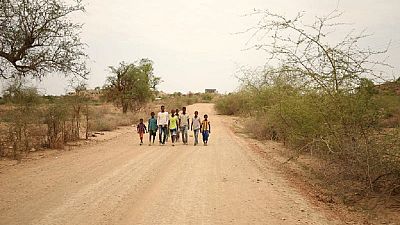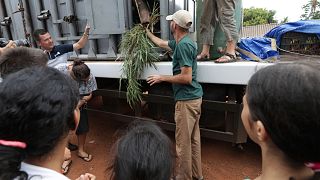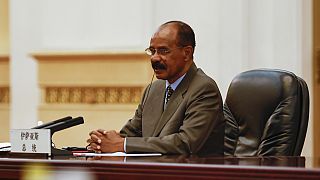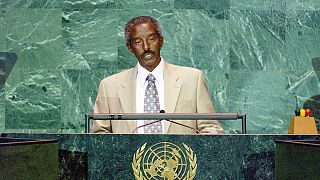Eritrea
Women and children constitute 90% of Eritreans crossing over into Ethiopia following the reopening of border crossing between the two countries.
According to ACAPS, a Geneva-based group tracking over 40 crises around the world, the number of refugees continues to rise sharply.
On the Ethiopian New Year – September 11, 2018 – border crossings were jointly opened by Ethiopian Prime Minister Abiy Ahmed and Eritrean President Isaias Afwerki. It was the most significant step since both leaders signed a peace deal on July 8, 2018 in Asmara.
Under the headline ‘Influx From Eritrea,’ in their crisis analysis report on Ethiopia dated October 9, 2018; ACAPS noted: “There are no border controls at these crossing points and the daily arrival rate has increased from an average of 50 people/day to 180 people/day as of 20 September.
“Between 21 September and 2 October, it increased again to 390 people/day. Since the border has been opened, 6,779 refugees from Eritrea were registered at the Endabaguna Reception Centre, with a further 2,725 others at the border points awaiting relocation to Endabaguna as of 2 October.
“90% of the new arrivals are women and children, in contrast with the current population of the Eritrean camps in Tigray, where young men were the majority. Main humanitarian needs are shelter and healthcare,” the added.
ACAP’s position has been made by other partner agencies like the United Nations Office for the Coordination of Humanitarian Affairs (OCHA), UNHCR, the EU’s humanitarian body and Crisis Watch.
Until the peace deal, borders were closed and the areas heavily militarized with armies of both countries on a war footing. Some young male Eritreans, however, managed to sneak into Ethiopia as they escaped political and economic conditions back home.
Reports earlier this week also confirmed that although not official intra-regional movement in the country was now going on easily without a person having to carry a pass.
The unofficial ease of travel restrictions within Eritrea is collaborated by several sources.
— Kjetil Tronvoll (KjetilTronvoll) October 10, 2018Natberhhttps://t.co/Ot91Lg6AFt












02:35
Central African Republic's major rebel groups to disarm, dissolve
Go to video
South Sudan's president Salva Kiir dismisses army chief Paul Nang Majok
01:13
China and Ethiopia reaffirm alliance at meeting on sidelies of BRICS summit
01:05
Ethiopia's mega-dam on the Nile is "now complete", Prime Minister says
01:52
UN's crucial humanitarian aid work faces a clouded future amid cuts in funds
02:00
Refugees in Kenyan camp face hunger after USAID funding freeze